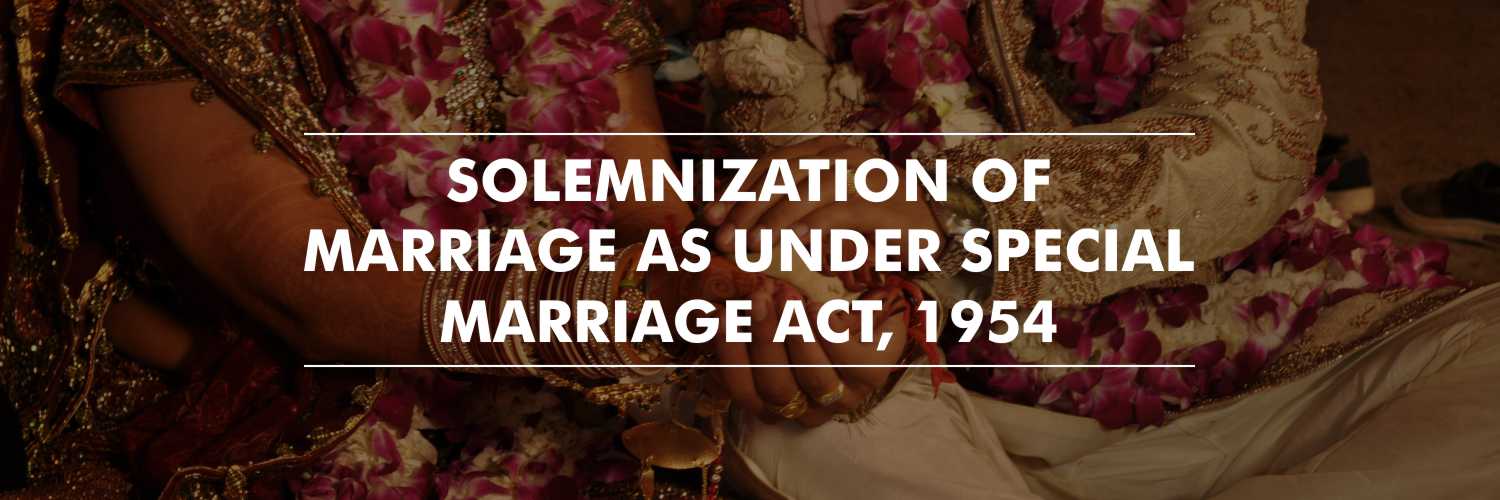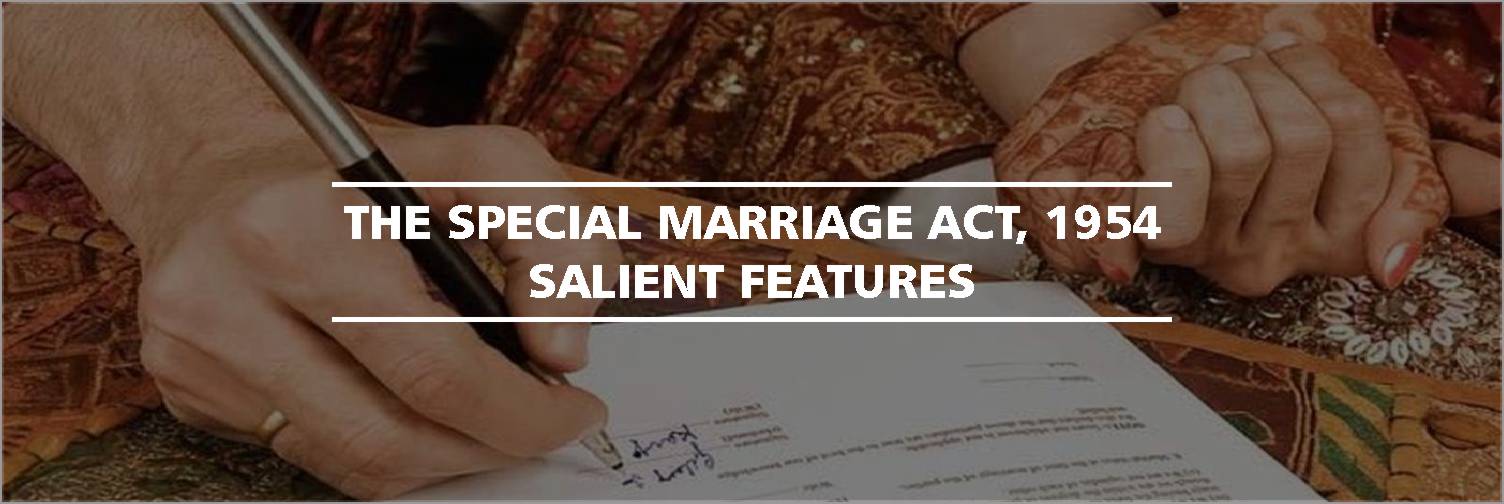How can I nullify my marriage?
In India, marriage is a religious sacrament and is considered a sacred eternal bond between a husband and a wife. Initially, it was undissolvable. The concept of ending a marriage or nullity of marriage in India was not there before the Parliamentary enactment. Wedlock is still considered a holy alliance. But, ending a marriage can be the only option in some scenarios. There is a legal recourse that can help you get rid of the ‘divorcee’ tag and that is annulment. Let’s explore annulment meaning, what makes a marriage null and void, and everything you need to know about annulment process.
What is the meaning of annulment of marriage?
To avoid the ambiguities, let’s get to know about the annulment of marriage meaning. Before opting for the option, you should first know what is marriage annulment.
An annulment is a legal declaration that ends the existence of the marriage. The term annulment refers to making a marriage null and void/voidable. It is an official declaration that it is invalid, so that legally it is considered never to have existed. There are different grounds for annulment in India.
In case the marriage is void ab initio (which means the marriage is considered to be invalid from its inception), then it shall be automatically null. However, the declaration of marriage nullity is required. In order to follow the procedure, you also need to know what qualifies a marriage for annulment and . You have to check the annulment of marriage rules as per your country. Because there might be different provisions in different countries.
Ways to end a marriage in India
In between, there will be a lot of legal recourses including mediation, restitution of conjugal rights, and many others while you are seeking a divorce. But these recourses won’t matter in case of an irretrievable breakdown of the marriage. Then, there are majorly two legal ways to end a marriage completely. But, there is another option. Here are the legal ways to end a toxic marriage.
Divorce
Divorce is a formal ending of a marriage. In the case of divorce, the validity of a marriage is not questioned, rather it questions the continuation of marriage. In divorce procedure, a valid marriage is dissolved by the court following all the legal proceedings. There are two types of divorce — Contested Divorce and Mutual Consent Divorce.
If divorce is the only option and you are looking for the fastest way to get a divorce, opting for a mutual consent divorce where both the parties can amicably decide on various legal aspects including child custody, maintenance, alimony, child visitation rights, etc. The petition will be filed under Section 13(B) of the Hindu Marriage Act, 1955 as per Hindu law. To get a divorce with mutual consent, the couple must have been married for at least one year, must be living separately for at least one year, and should prove the irretrievable breakdown of a marriage.
When there is no mutual agreement, a contested divorce is the only option. One can file a petition on various legal grounds for divorce in India which includes Adultery, Conversion, Venereal disease, Cruelty, Mentally unstable, Renunciation of death, Non-resumption of cohabitation by a spouse, Whereabouts are not known for more than 7 years, and Non-restitution of conjugal rights. The petition can be moved under Section 13 of the Hindu Marriage Act, 1955. The divorce process in India is mostly very lengthy and draining.
Annulment
What is it called when a marriage never existed? There is an option available in law which will erase that bad chapter from your life. Yes, there is an option to end a marriage or we can say a way to cancel the marriage in India. That process is annulment.
Is annulment easier than divorce? No, not at all. The end result might attract you to prefer annulment instead of divorce but annulment could be a much lengthy process. But with an annulment, there will be no ‘divorcee’ tag as it wipes out the existence of a marriage. Therefore, this is one of the reasons to annul a marriage instead of divorce.
Judicial Separation
Not a way to end a marriage but legally allowed to stay apart. It is a legal process under which a married couple is formally separated despite being legally married. When judicially separated, the duties and liabilities will remain the same for both parties. It can act as a ground for divorce too.
How is annulment different from divorce?
There are similarities as well as some differences between divorce and annulment. Annulment and divorce both lead to the ending of a marriage. But annulment declares that a marriage never existed. However, divorce dissolves a valid marriage.
What is a void marriage?
A void marriage is one that is non-existent and is not legally valid under the laws of the jurisdiction where the marriage occurred. The marriage will be void ab initio (from the beginning). The parties involved were never married in the eyes of the law and no formality is needed to terminate the marriage.
What Makes a Marriage Null and Void? Section 5 of the Hindu Marriage Act, 1955 (hereinafter HMA) provides for the conditions for a valid Hindu marriage and if it contravenes the clause (i), (iii), (iv), and (v), then the marriage will be considered null and void.
- Under Section 5 (i) of HMA, any party to a marriage should not have a spouse living at the time of the marriage. This provision barred bigamous or polygamous act.
- Under Section 5 (ii) of HMA, the following conditions need to be fulfilled at the time of marriage:
– Any of the party to a marriage should not be incapable of giving a valid consent due to the unsoundness of mind;
– If both the parties to a marriage are capable of giving valid consent but any of them should not suffer from such a mental disorder, which is unfit for marriage and the procreation of a child;
– Any of the parties to a marriage should not have been subject to recurrent attacks of insanity. - Under Section 5 (iii), at the time of marriage, the bridegroom must have completed the age of twenty-one years and the bride must have completed the age of eighteen years.
- Under Section 5 (iv), their relationship must not fall within the degrees of a prohibited relationship if so then it must be allowed by their custom and usage.
- Under Section 5 (v), the parties should not be sapindas of each other. But if the customs or usage governing the parties to marriage allows then such marriage will be a valid marriage.
What is a prohibited relationship for annulment?
- One person is the ascendant of the other in a lineage like a daughter and father, son and mother, etc.
- One had been the wife or the husband of the lineal ascendant like the widow of father and also the wife or husband of the lineal descendant like the wife of a son.
- One is the wife of the brother, father’s brother’s wife, maternal uncle’s wife, grandfather’s or grandmother’s brother’s wife
- Other relations like that of uncle and niece, aunt and nephew, children of two brothers or two sisters or a brother or sister.
- When one is in Sapinda relation to each other except when the custom or usage permits so.
What is voidable marriage?
Voidable marriages are those which are valid in the eyes of the law and can be challenged by either of the parties. Section 12 of the Hindu Marriage Act, 1955 talks about the voidable marriages in India. And if you are interested to know about the difference between void and voidable marriages, you can go through Section 5 of Hindu Marriage Act, 1955.
At what condition marriage is considered as voidable marriage?
There are several ambiguities regarding the conditions to prove a marriage voidable and get an annulment order. The marriage will be considered voidable when
- Non-consummation of the marriage due to the inability of respondent or impotency.
- Consent given under unsoundness of mind
- The wife was pregnant with someone else’s child at the time of solemnization of marriage.
- The consent for marriage was obtained by force or fraud.
But before filing a case for annulment of marriage, there are certain conditions which you need to keep in mind. The questions like Can a marriage be annulled after 1 year in India or what is the time frame to have a marriage annulled might be troubling you. So, here are some details which can bring some clarity.
- If a year has passed since the concerned fraud came to the petitioner’s knowledge, annulment of marriage is not possible.
- When the petitioner is aware of the fraud and still chooses to stay with the other spouse, a petition for annulment cannot be filed.
- In case the husband knew about the wife’s pregnancy and still chose to marry, the person cannot file for annulment of marriage.
All the aforementioned conditions are applicable for the annulment of marriage under Hindu Marriage Act, 1955.
Annulment of marriage under Parsi law
Muslim Personal Law (Shariat) Application Act, 1937 describes marriage as a dissoluble contract between two parties which needs valid consent is ‘Mehar’ is also decided. Following are the conditions for annulment of marriage under Muslim personal laws
- Interreligious marriage with a woman who doesn’t have a religious status. A Muslim man cannot marry a female who doesn’t follow Islam.
- In Sunnis, conditional or interim marriage is void.
- The marriage between milk relation or ‘maharim’ close blood relatives.
- Solemnization of marriage with a person who doesn’t have faith or renounces Islam.
- Solemnization of marriage with a woman during her Iddat period.
Marriage annulment under Parsi Marriage and Divorce Act, 1936
Under Section 30 of Parsi Marriage and Divorce Act, 1936, marriages where the consummation of the marriage by natural causes is impossible, may at the instance of either party thereto, be declared to be null and void.
Annulment of marriage under Christian law
Christianity considers marriage indissoluble and holy wedlock. But to avoid discrimination, separate laws related to Christian marriages in India including the Indian Christian Marriage Act, 1872 and Indian Divorce Act, 1869. The latter was amended in 2001. The conditions for nullity of marriage for Christians include
- Impotency
- Bigamy
- Solemnization of marriage within the prohibited degree of consanguinity or affinity
- Either party was lunatic at the time of marriage.
Annulment of marriage under Special Marriage Act, 1954
A marriage can be declared null or void under Section 24 of the Special Marriage Act, 1954. The grounds for the annulment under SMA includes
- Either party is underaged.
- Impotency.
- Either party has a living spouse.
- Either party is incapable of giving consent due to unsoundness of mind or mental illness or unfit to the procreation of children.
- In a prohibited relationship
How to get a marriage annulled in India?
After knowing all the annulment requirements in India, the next step would be to check the jurisdiction or place where you can file an annulment petition in India. Every court has a certain jurisdiction and you have to file the petition accordingly. Under Hindu Marriage Act, you can initiate annulment proceedings in the following places.
- Place where the marriage took place.
- Place where the husband and wife last resided.
- Place where the wife is currently residing.
- A petitioner has to stay for 90 days at a place to file an annulment petition.
Documents required to file for annulment of marriage in India
You have to provide all the necessary documents required to get the marriage annulled. Similar documents which are required to get a divorce will be needed in an annulment process in India.
Can a woman claim maintenance after annulment of marriage?
Yes, a wife can claim maintenance in annulment proceedings. Section 24 of the Hindu Marriage Act, 1955 mentions about the interim maintenance which can be availed till the finality of the case. After the case is finalised, Section 25 of HMA talks about the payment of alimony/maintenance. Either the husband or wife can apply for maintenance under Section 25 of the Act.
Legitimacy of children born out of null or void marriage
The status of the legitimacy of a child defines rights and liabilities. The children born out of the void or voidable marriage are legitimate. The status provides the right to inheritance, rightful status in society, and many other rights.
Legitimacy of child of void and voidable under Hindu Marriage Act, 1955
Section 16 (1) — Notwithstanding that marriage is null and void under Section 11, any child of such marriage who would have been legitimate if the marriage had been valid, shall be legitimate, whether such child is born before or after the commencement of the Marriage Laws (Amendment) Act, 1976 (68 of 1976), and whether or not a decree of nullity is granted in respect of that marriage under this Act and whether or not the marriage is held to be void otherwise than on a petition under this Act.
Section 16 (2) — Where a decree of nullity is granted in respect of a voidable marriage under Section 12, any child begotten or conceived before the decree is made, who would have been the legitimate child of the parties to the marriage if at the date of the decree it had been dissolved instead of being annulled, shall be deemed to be their legitimate child notwithstanding the decree of nullity.
Section 16 (3) — Nothing contained in sub-section (1) or sub-section (2) shall be construed as conferring upon any child of a marriage which is null and void or which is annulled by a decree of nullity under Section 12, any rights in or to the property of any person, other than the parents, in any case where, but for the passing of this Act, such child would have been incapable of possessing or acquiring any such rights by reason of his not being the legitimate child of his parents.
Legitimacy of child of void and voidable under Special Marriage Act, 1954
Section 26 (1) — Notwithstanding that a marriage is null and void under Section 24, and child of such marriage who would have been legitimate if the marriage had been valid, shall be legitimate, whether such child is born before or after the commencement of the Marriage Laws (Amendment) Act, 1976 (68 of 1976), and whether or not decree of nullity is granted in respect of that marriage under this Act and whether or not the marriage is held to be void otherwise than on a petition under this Act.
Section 26 (2) — Where a decree of nullity is granted in respect of a voidable marriage under Section 25, any child begotten or conceived before the decree is made, who would have been the legitimate child of the parties to the marriage if at the date of the decree it has been dissolved instead of being annulled, shall be deemed to be their legitimate child notwithstanding the decree of nullity.
Section 26 (3) — Nothing contained in sub-section (1) or sub-section (2) shall be construed as conferring upon any child of a marriage which is null and void or which is annulled by a decree of nullity under Section 25, any rights in or to the property of any person, other than the parents, in any case where, but for the passing of this Act such child would have been incapable of possessing or acquiring any such rights by reason of his not being the legitimate child of his parents.
Observations by Karnataka High Court
“Children born from all void or voidable marriages, irrespective of the personal laws applicable to their parents, are eligible for compassionate appointments in government service,” noted Karnataka High Court in July 2021.
“It is constrained to make these observations in order “to protect the children born out of void and voidable marriages under any of the personal laws applicable in India or the Special Marriage Act, 1954, irrespective of whether the personal law confers such legitimacy or not,” noted the division bench of Justice B.V. Nagarathna and Justice Hanchate Sanjeevkumar.
The HC bench went on to add, “it is just and necessary to protect the rights of the children born from all void or voidable marriages and extend the benefit of the rules or regulations concerning compassionate ground appointments to all such children, de hors, the personal law applicable to them in the context of the marriage being void or voidable under the said personal law.”
Conclusion
So, now you are well aware of the annulment procedure in India and whatever you require to get your marriage annulled. The process can be less tedious when choosing an annulment lawyer in India cautiously. An experienced and expert lawyer for annulment can help you avoid the major loopholes by providing the right legal recourse. You can look for a best family lawyer, best matrimonial dispute lawyer, or a veteran divorce lawyer can also help you better.
This article is written by Varsha. You can reach out to the author via email at bnbvarsha@gmail.com.









